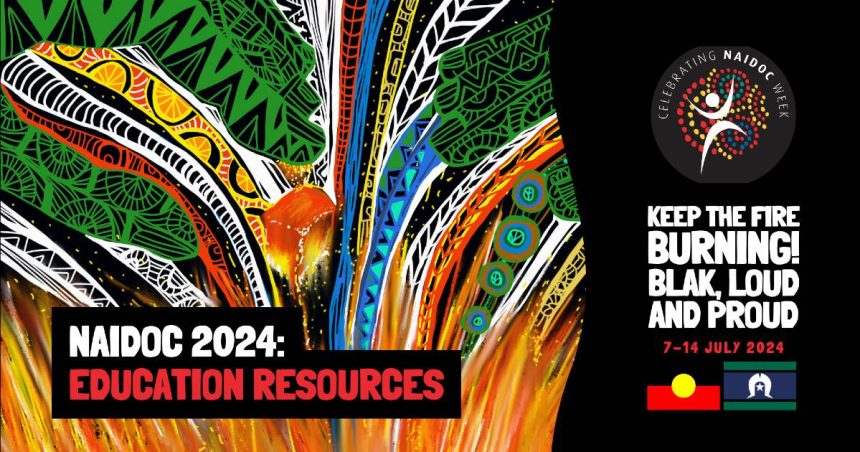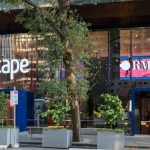The 2024 NAIDOC Week (7-14 July) theme is Keep the Fire Burning! Blak, Loud and Proud – a theme that honours the enduring strength and vitality of First Nations culture, with fire a symbol of connection to Country, to each other, and to the rich tapestry of traditions that define Aboriginal and Torres Strait Islander peoples.
Sharing stories of inspirational trailblazers
A range of educational resources are available to suit all age levels, with primary school students across years three-six encouraged to honour the Elders and senior Aboriginal and Torres Strait Islander people who have been proud change-makers and trailblazers.
The key focus is on four inspirational leaders, with students invited to read their stories, and reflect on the discussion questions to guide meaningful conversations about the ways each unique individual kept their own fire burning – within themselves and their community – and how they advocated for change across the
country in various areas.
The people:
Dr Alice (Alitya) Rigney AO PSM DUniv was a proud Kaurna and Narungga Elder and matriarch who passed away in 2017. She devoted her life to education, teaching more than 5,000 Aboriginal students, and she established the first urban Aboriginal school in Australia: Kaurna Plains School in Adelaide.
Dr Rigney was the first female Aboriginal school principal in Australia and held numerous leadership positions across the Department for Education in South Australia. She ensured that the Kaurna language was taught at the school and committed to the preservation of Aboriginal languages. She also played an integral role in the implementation of the Kaurna language curriculum in South Australia. Dr Rigney received numerous honours in recognition of her work, including a Public Service Medal for her outstanding contribution to education and an honorary doctorate from the University of South Australia.
Dr Lowitja O’Donoghue AC CBE DSG was a proud Yankunytjatjara woman and one of Australia’s most recognised Aboriginal women, who passed away in 2024. She was a powerful and unrelenting advocate for her people, who dedicated her life to the advancement of Aboriginal and Torres Strait Islander rights, producing significant outcomes in health, education, political representation, land rights and reconciliation.
In August 2022, the Lowitja O’Donoghue Foundation was created in honour of the extraordinary legacy of the dedicated lifetime of work by Dr O’Donoghue.
Proud Gumatj clan leader Galarrwuy Yunupingu AM was one of Australia’s most influential Aboriginal leaders and a trailblazing land rights fighter. In 1978, he was named Australian of the Year for his work relating to negotiations over the Ranger Uranium Mine and Kakadu National Park. He also chaired the Gumatj Corporation and the Yothu Yindi Foundation, which runs the annual Garma Festival at Gulkula in Arnhem Land.
As a strong advocate for local employment and self-determination, Yunupingu set up a local cattle station, timber mill and nursery in Arnhem Land, and he established the first Aboriginal owned and operated mine in the country: the Gumatj-owned Gulkula Bauxite Mine. The Youth Yindi Foundation said, “He was first and foremost a leader of his people, whose welfare was his most pressing concern and responsibility.”
Eddie Koiko Mabo was a proud Meriam man from the Torres Strait Islands who fought for years to overturn the myth of Terra Nullius (“land belonging to no-one”). In 1992, six of seven High Court judges found the Meriam people had traditional rights to their land – and in doing so, the court found that native title existed for all Indigenous people.
The historic case set the benchmark for Aboriginal and Torres Strait Islander peoples across the nation to start to regain control and ownership over their lands.
Eddie Mabo’s legacy lives to this very day and will continue into the future. Mabo Day is celebrated each year on 3 June to celebrate this momentous event in our history.
The discussion:
Educators and carers can help young people gain a better understanding of Indigenous history and achievements by exploring the lives of these – and other First Nations leaders.
Some questions to consider and topics to explore include:
- What gave each person the “fire” in them to dedicate their lifetime to the advancement of
Aboriginal and Torres Strait Islander people? - What does it mean to be a leader, role model, trailblazer or change-maker?
- Do you have any leadership skills that are similar to the leaders profiled below (e.g. public speaking, collaboration, teamwork or passion)?
- How do the four Aboriginal and Torres Strait Islander leaders show pride in their identity?
The resources:
- Read the book This Book Thinks Ya Deadly! A Celebration of Blak Excellence by Kamilaroi man Corey Tutt and explore the many Aboriginal and Torres Strait Islander biographies.
- Listen to the song From Little Things Big Things Grow by Paul Kelly and Kev Carmody. Why do you think this song resonates particularly with Aboriginal and Torres Strait Islander people across Australia?
- Deadly Science
- My People








